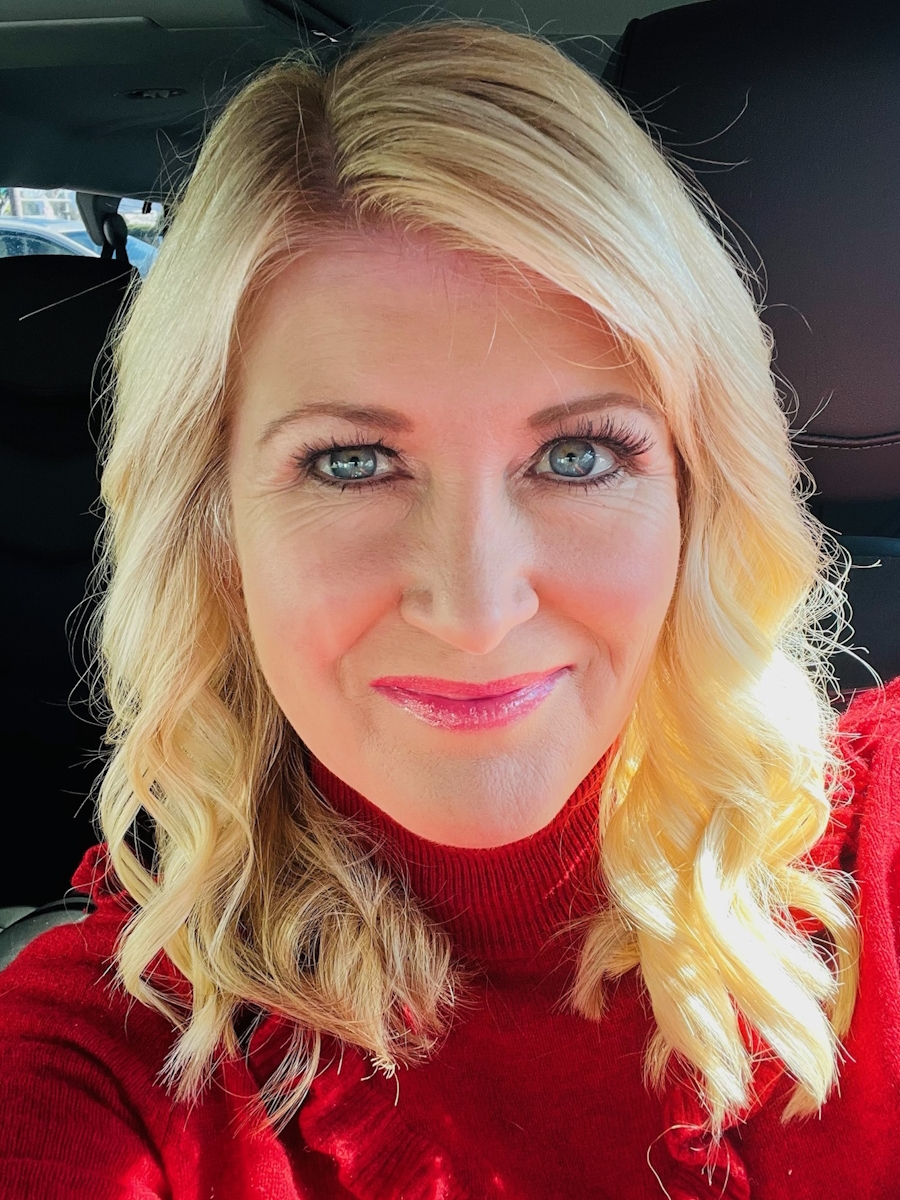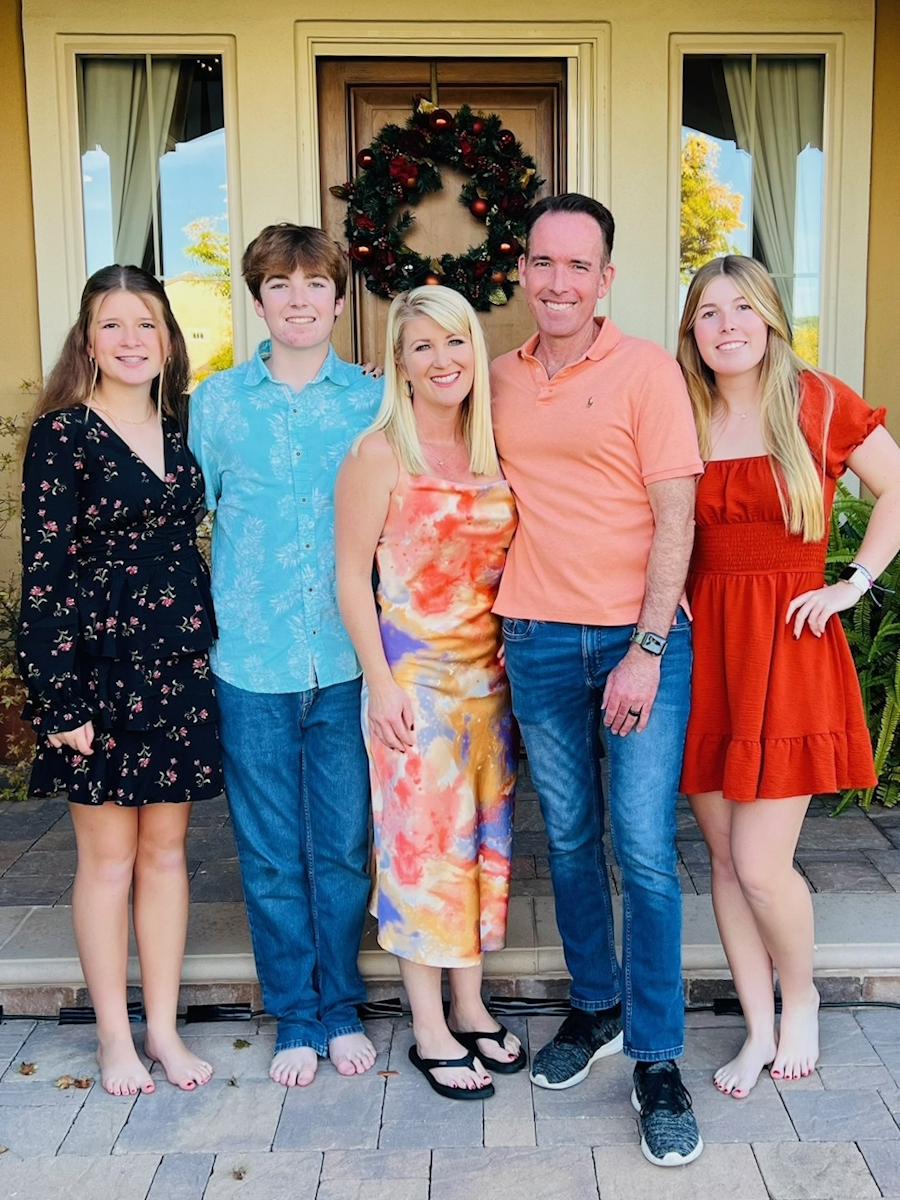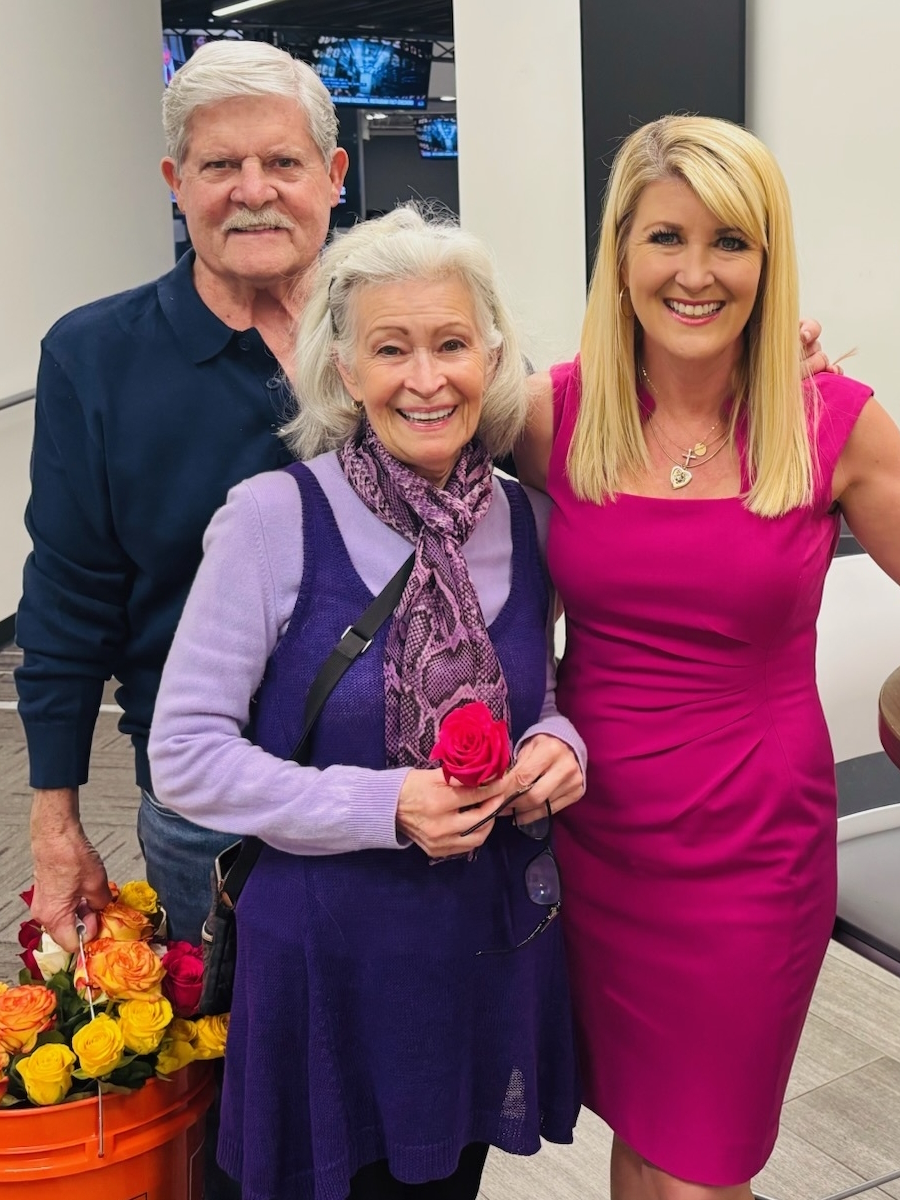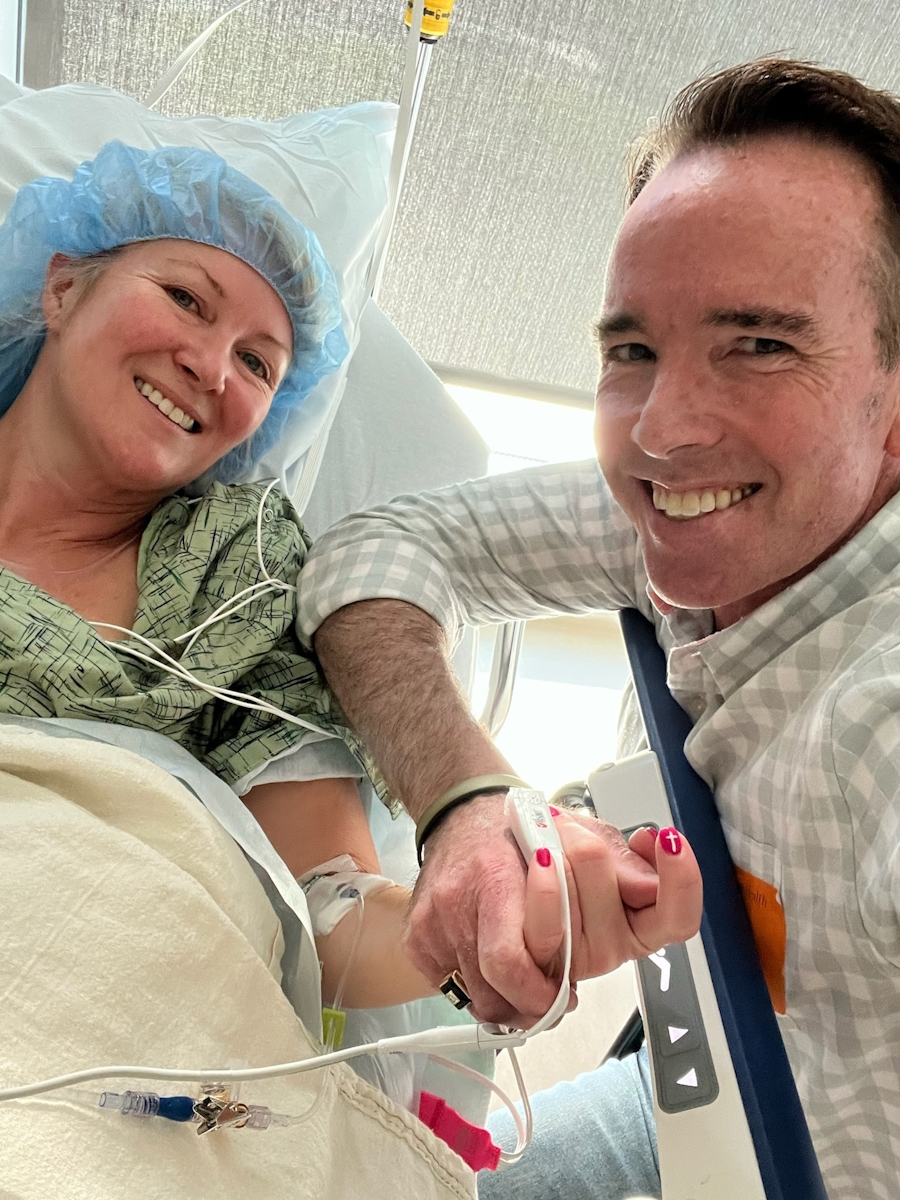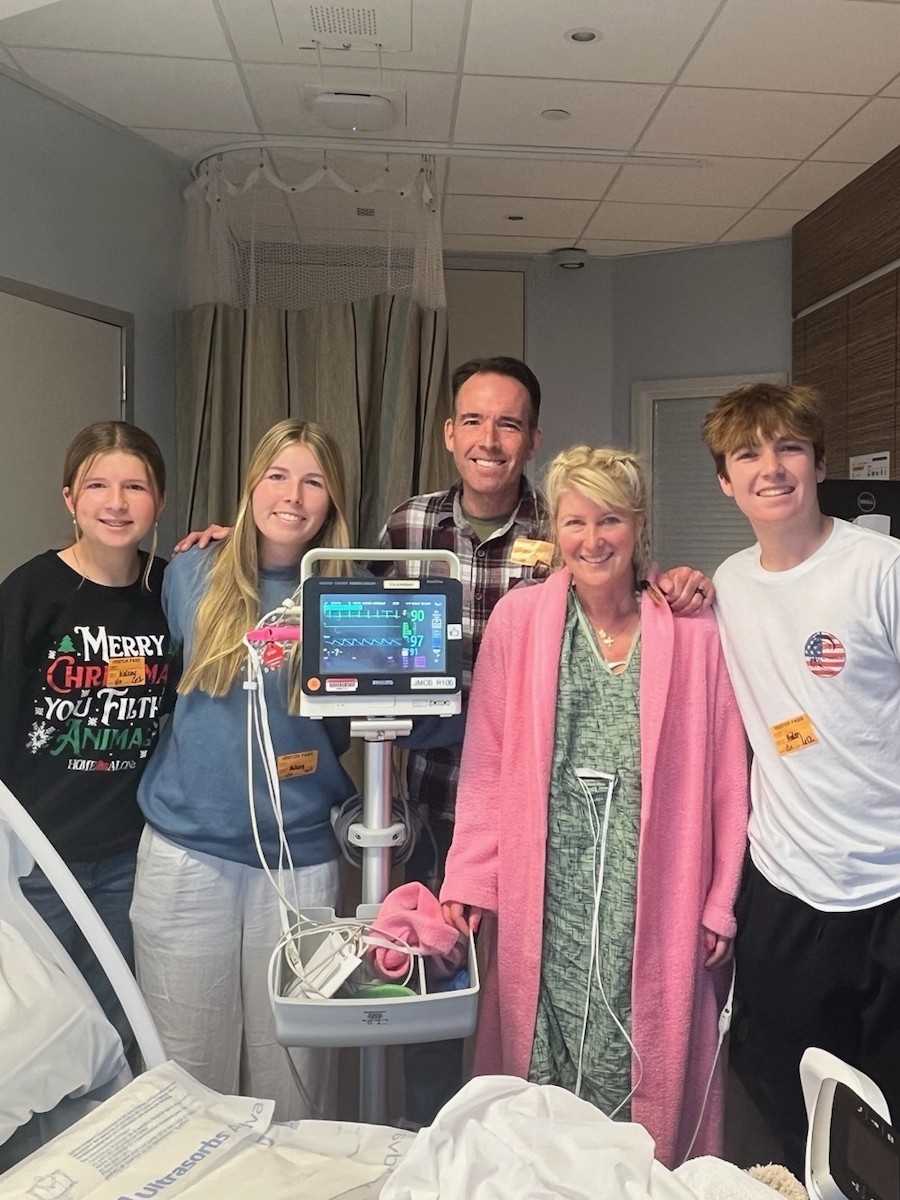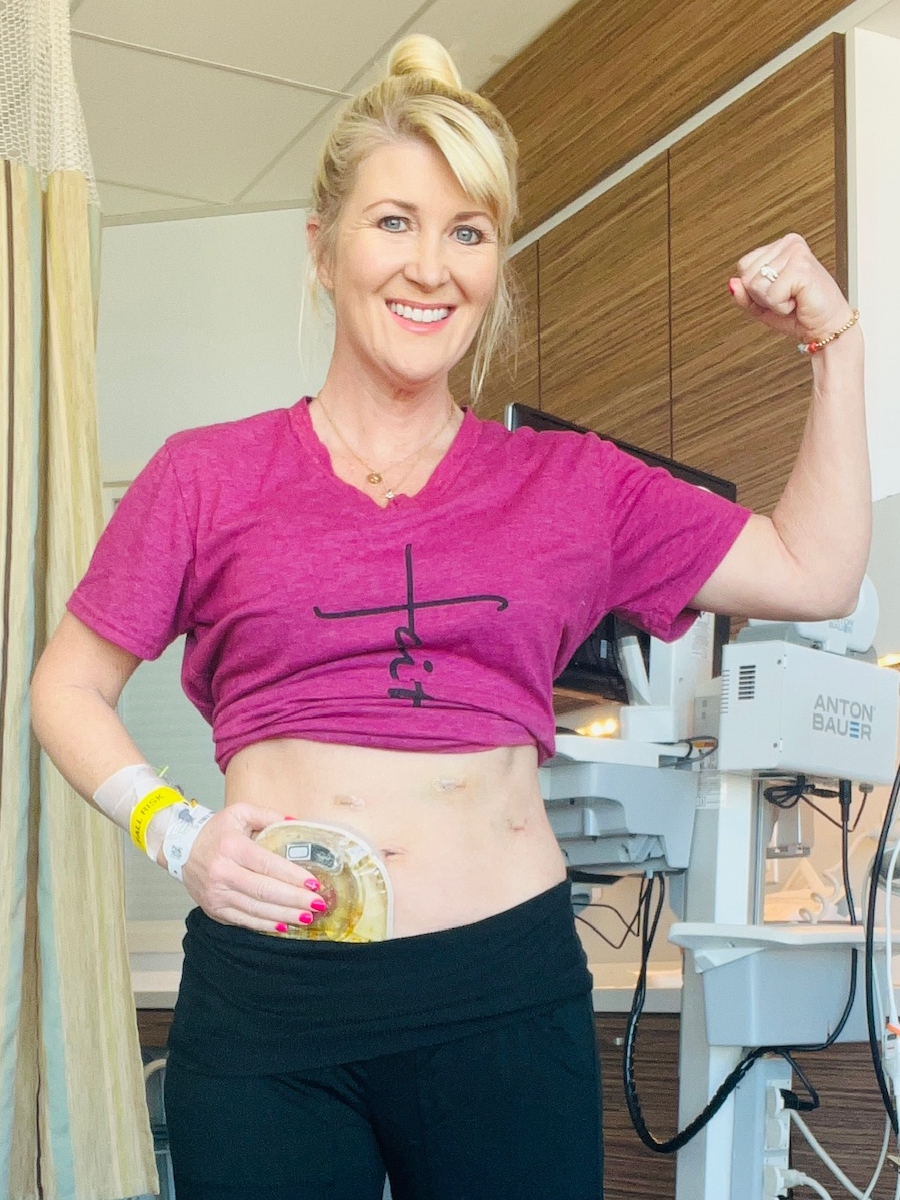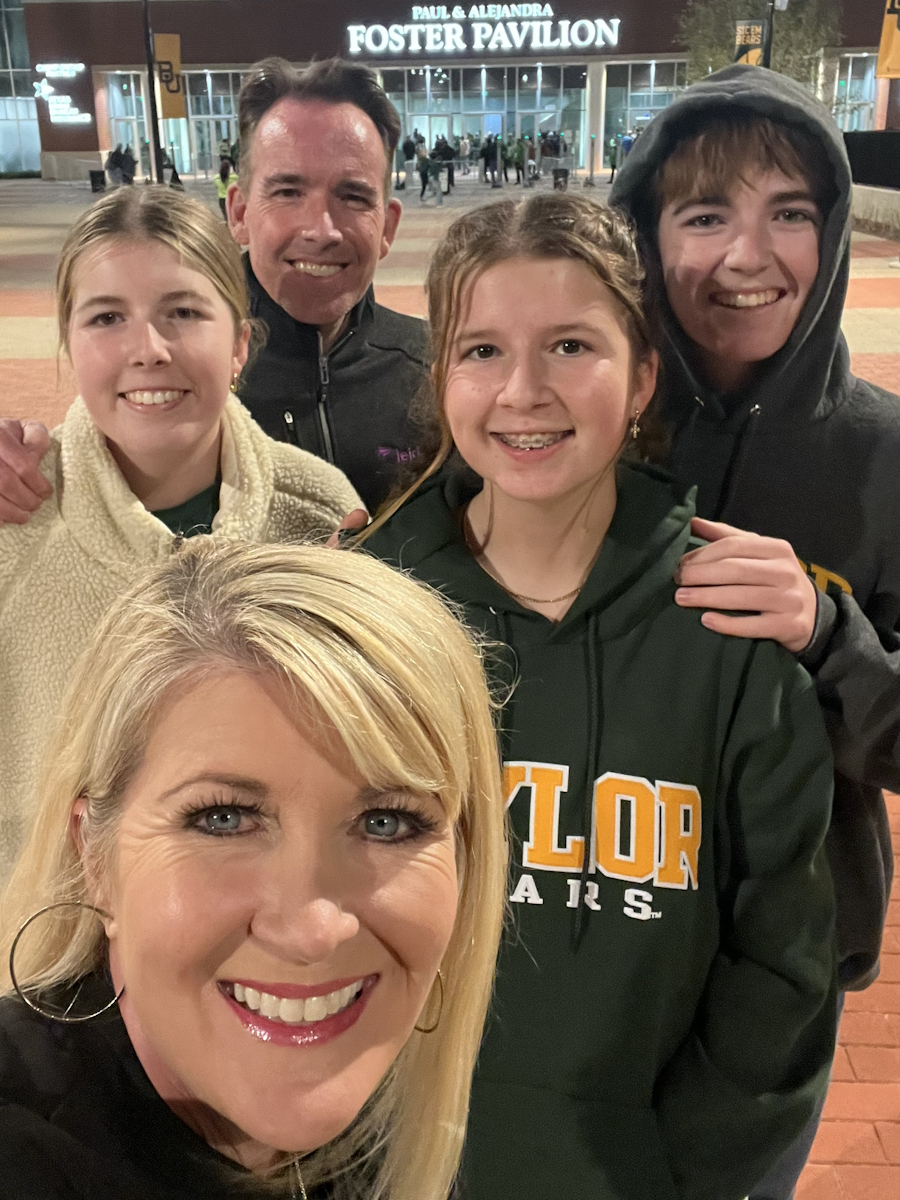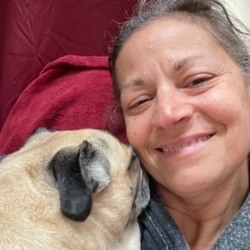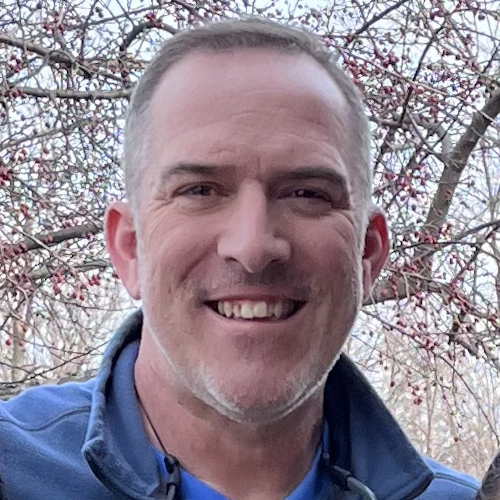The Routine Check That Wasn’t: Monica’s Stage 1 Colorectal Cancer
Monica Dean, a San Diego news anchor and mom of three, thought she was just checking off a routine health to-do when she went in for her first colonoscopy at 46 and ended up with a stage 1 colorectal cancer diagnosis. She felt healthy and had neither symptoms nor an immediate family history of colorectal cancer. But thanks to a conversation she’d had with a man who wished he’d gotten screened earlier, Monica followed her gut and got the screening anyway. That decision, she says, saved her life.
Interviewed by: Taylor Scheib
Edited by: Katrina Villareal
During the colonoscopy, doctors found 13 polyps and a two-centimeter mass that turned out to be stage 1 colorectal cancer. Monica describes waking up mid-procedure, still groggy but alarmed when she saw the medical team’s serious expressions. Her world shifted instantly. What was supposed to be a routine checkup had become the beginning of a life-altering experience.

Even though the diagnosis was shocking, Monica leaned heavily on her faith, family, and inner strength. Waiting for the final pathology results was agonizing. She wrestled with fear, numbness, and uncertainty, but her belief in God kept her grounded. Through it all, she stayed committed to showing up for her family. She even anchored the news 30 minutes after getting her diagnosis because doing something familiar felt oddly comforting.
Tests confirmed that her stage 1 colorectal cancer hadn’t spread. She met with multiple doctors, including the chief of colorectal surgery at UC San Diego Health, and decided on a lower anterior resection surgery. This complex surgery required her to live temporarily with an ileostomy, something she had never imagined but learned to manage with grace and strength.
Post-surgery pathology brought good news: no lymph node involvement and clean margins. She wouldn’t need chemotherapy or radiation. Monica candidly shares the physical and emotional toll of recovery, including fatigue, pain, and adjusting to life with an ostomy bag. But she also emphasizes the clarity that came from it all — how it slowed her down, helped her re-evaluate her priorities, and deepened her faith.
Now, Monica’s passionate about encouraging others to get screened, especially if you’re nearing 45 or have a family history. She wants people to know that catching stage 1 colorectal cancer early can be lifesaving and that leaning into your support system, whether it’s faith, family, or community, makes a world of difference.
Watch Monica’s story to learn more about:
- Why she scheduled a colonoscopy despite feeling perfectly healthy.
- The one conversation that pushed Monica to get screened, which may have saved her life.
- How a surprise diagnosis gave her a deeper sense of purpose and a renewed perspective.
- How community and clarity emerged in the most unexpected way.
- Name: Monica Dean
- Age at Diagnosis:
- 46
- Diagnosis:
- Colorectal Cancer
- Staging:
- Stage 1
- Symptoms:
- None; caught at a routine colonoscopy
- Treatment:
- Surgery: Low anterior resection with temporary diverting ileostomy
This interview has been edited for clarity and length. This is not medical advice. Please consult with your healthcare provider to make informed treatment decisions.
The views and opinions expressed in this interview do not necessarily reflect those of The Patient Story.

Inspired by Monica's story?
Share your story, too!
More Colorectal Cancer Stories
Monica D., Colorectal Cancer, Stage 1
Symptoms: None; caught at a routine colonoscopy
Treatment: Surgery (low anterior resection with temporary diverting ileostomy)
Edie H., Colorectal Cancer, Stage 3B
Symptom: Chronic constipation
Treatments: Chemotherapy, radiation, surgeries (lower anterior resection & temporary ileostomy)
Shayla L., Colorectal Cancer, Stage 4
Symptoms: Stomach sensitivity, food intolerances, exhaustion, blood in stool
Treatments: Chemotherapy, surgery (hepatectomy)
Tracy R., Colorectal Cancer, Stage 2B
Symptoms: Bloating and inflammation, heaviness in the rectum, intermittent rectal bleeding, fatigue
Treatments: Chemotherapy, radiation, surgery
Paula C., Colorectal Cancer, Stage 3
Symptoms: Painful gas, irregular bowel movements, blood in stool, anemia, severe pain, weight loss, fainting spells
Treatment: Surgery (tumor resection)
Nick S., Colorectal Cancer, Stage 4A
Symptoms: Change in bowel habits, size & consistency, blood in stool, abdominal pain, fatigue
Treatments: Surgery (sigmoid colectomy), chemotherapy (capecitabine, oxaliplatin), immunotherapy (bevacizumab, pembrolizumab)
